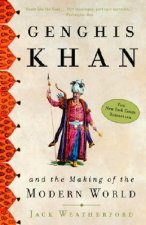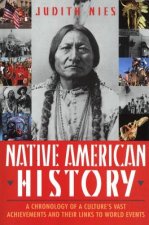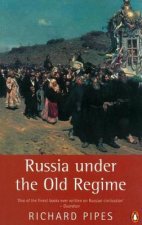
Code: 08775260
African American Religion and the Civil Rights Movement in Arkansas
by Johnny E. Williams
What role did religion play in sparking the call for civil rights? Was the African American church a motivating force or a calming eddy? The conventional view among scholars of the period is that religion as a source for social ac ... more
- Language:
 English
English - Binding: Paperback
- Number of pages: 177
Publisher: University Press of Mississippi, 2003
- More about this

You might also like
-

Borkowski's Textbook on Roman Law
64.12 € -

My Three Lost Girls
20.93 € -18 % -

Manuale di psicologia della salute. Prospettive cliniche, dinamiche e relazionali
34.32 € -

Crossing the Abyss Made Easy
16.70 € -2 % -

Casual Commuter
16.70 € -2 % -

Raving Fortune
16 € -4 % -

Leadership Velocity: Coaching Approach, Best Practices and Tools to Accelerate the Development of Leaders
15.70 € -2 %
Give this book as a present today
- Order book and choose Gift Order.
- We will send you book gift voucher at once. You can give it out to anyone.
- Book will be send to donee, nothing more to care about.
More about African American Religion and the Civil Rights Movement in Arkansas
You get 110 loyalty points
 Book synopsis
Book synopsis
What role did religion play in sparking the call for civil rights? Was the African American church a motivating force or a calming eddy? The conventional view among scholars of the period is that religion as a source for social activism was marginal, conservative, or pacifying. Not so, argues Johnny E. Williams. Focusing on the state of Arkansas as typical in the role of ecclesiastical activism, his book argues that black religion from the period of slavery through the era of segregation provided theological resources that motivated and sustained preachers and parishioners battling racial oppression. Both religious beliefs and the African American church itself were essential in motivating blacks to act individually and collectively to confront their oppressors in Arkansas and throughout the South. Drawing on interviews, speeches, case studies, literature, sociological surveys, and other sources, Williams explains how the ideology of the black church roused disparate individuals into a community and how the church established a base for many diverse participants in the civil rights movement. He shows how church life and ecumenical education helped to sustain the protest of people with few resources and little permanent power. Williams argues that the church helped galvanize political action by bringing people together and creating social bonds even when societal conditions made action difficult and often dangerous. The church supplied its members with meanings, beliefs, relationships, and practices that served as resources to create a religious protest message of hope. Johnny E. Williams is associate professor of sociology at Trinity College.
 Book details
Book details
Book category Books in English Humanities History Regional & national history
43.78 €
- Full title: African American Religion and the Civil Rights Movement in Arkansas
- Author: Johnny E. Williams
- Language:
 English
English - Binding: Paperback
- Number of pages: 177
- EAN: 9781604731866
- ISBN: 9781604731866
- ID: 08775260
- Publisher: University Press of Mississippi
- Weight: 339 g
- Dimensions: 229 × 152 × 12 mm
- Date of publishing: 16. July 2003
Trending among others
-

Strange Death of Europe
15.19 € -22 % -

Genghis Khan
19.52 € -7 % -

Secret History
11.27 € -28 % -

History of the Ancient Near East ca. 3000 - 323 BC 3e
55.46 € -

Penguin Historical Atlas of Ancient Egypt
18.21 € -20 % -

God's Playground A History of Poland
67.24 € -

City of Fortune
14.29 € -22 % -

The Great Depression: A Diary
17.91 € -14 % -

Gulag
15.29 € -27 % -

Native American History
20.73 € -13 % -

Pocket History of Ireland
7.44 € -26 % -

Hangman's Diary
12.07 € -25 % -

Badges and Uniforms of the Royal Air Force
17.31 € -18 % -

Shah of Shahs
10.26 € -28 % -

To Hell and Back
16.60 € -22 % -

Complete Pompeii
30.80 € -23 % -

Olympic, Titanic, Britannic
28.08 € -19 % -

With the Old Breed
15.70 € -25 % -

Constantinople
15.09 € -18 % -

Welsh Castles
33.62 € -19 % -

Penguin Historical Atlas of Ancient Greece
20.13 € -28 % -

World of Saint Patrick
33.01 € -7 % -

Venetians in Constantinople
36.33 € -

Few
10.56 € -18 % -

Ninja, The Secret History of Ninjutsu
15.09 € -16 % -

Penguin Historical Atlas of Ancient Rome
17.31 € -18 % -

Annals & The Histories
17.71 € -19 % -

Century of Palestinian Rejectionism and Jew Hatred
9.35 € -16 % -

British Isles
21.33 € -17 % -

Russia and the Russians
19.42 € -27 % -

English Castles
29.19 € -19 % -

Civilization of Europe in the Renaissance
17.31 € -13 % -

US HISTORY
11.87 € -1 % -

Earth is Weeping
15.19 € -28 % -

French Army 1870-71 Franco-Prussian War (2)
16.60 € -10 % -

Russia Under the Old Regime
13.28 € -28 % -

Decline and Fall of the Roman Empire: Vols 1-3
60.09 € -28 % -

Amazons
12.78 € -18 % -

Midnight at the Pera Palace
16.60 € -17 % -

1812
20.13 € -28 % -

Empire of the Steppes
65.13 € -

German Order of Battle
22.54 € -

The Fourth Turning
20.63 € -6 % -

Ethnic Cleansing of Palestine
12.88 € -25 % -

Beyond Band of Brothers
15.19 € -28 % -

Bushido, the Soul of Japan
13.98 € -

Ten Myths About Israel
13.48 € -35 % -

How to be a Victorian
13.28 € -28 % -

Easy Company Soldier
15.59 € -25 %
Collection points Bratislava a 2642 dalších
Copyright ©2008-24 najlacnejsie-knihy.sk All rights reservedPrivacyCookies



 15549 collection points
15549 collection points Delivery 2.99 €
Delivery 2.99 € 02/210 210 99 (8-15.30h)
02/210 210 99 (8-15.30h)